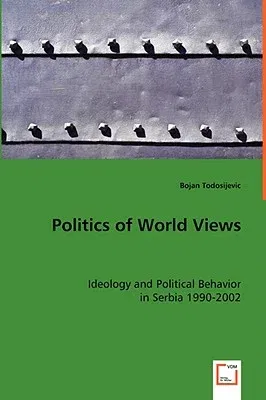Bojan Todosijevic
(Author)Politics of World ViewsPaperback, 12 June 2008

Qty
1
Turbo
Ships in 2 - 3 days
In Stock
Free Delivery
Cash on Delivery
15 Days
Free Returns
Secure Checkout
Print Length
240 pages
Language
English
Publisher
VDM Verlag Dr. Mueller E.K.
Date Published
12 Jun 2008
ISBN-10
3639014308
ISBN-13
9783639014303
Description
Product Details
Author:
Book Format:
Paperback
Country of Origin:
US
Date Published:
12 June 2008
Dimensions:
22.86 x
15.24 x
1.3 cm
ISBN-10:
3639014308
ISBN-13:
9783639014303
Language:
English
Location:
Saarbrucken
Pages:
240
Publisher:
Weight:
326.59 gm

